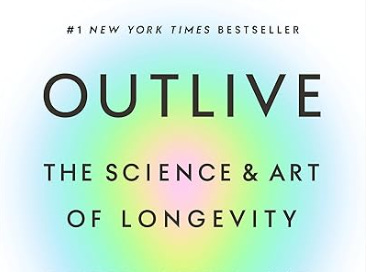LDRT on Peter Attia's "The Drive"!
Is low dose radiation therapy for musculoskeletal indications ready for prime time?
A nice treat this AM was several messages about the latest podcast episode from Dr. Peter Attia on one of my favorite topics - low dose radiation therapy.
If you don’t know him, he is a physician that has made a brand out of longevity medicine. He is very good at breaking down what is crucial for us to live longer and has also written a book about this - “Outlive: The Science and Art of Longevity”.
His podcast, “The Drive” is wonderful - talking about exercise, diet, cancer screening, supplements and reviews it in a conversational, but still very high level and evidenced based manner. The episode of note is “The evolving role of radiation: advancements in cancer treatment, emerging low-dose treatments for arthritis, tendonitis, and injuries, and addressing misconceptions.” The guest is a radiation oncologist, Dr. Sanjay Mehta, from St. Joseph’s Medical Center in Houston, TX.
This is a very informative episode and it really explains radiation in general well. It’s a great listen.
It’s also timely. I had a charged e-mail conversation when a faculty member from a prominent academic center pushed back on LDRT for osteoarthritis and labeled it “scammy”. They felt that it should never, ever be done. I was surprised at both the tone and the content of their comments. Part of our failure in our specialty has been not looking at ways to expand our footprint and to have a lack of curiosity when we don’t understand something. We have a few positive randomized trials now and many on the way. This is a low toxicity treatment that may be quite effective. In my experience of >100 patients, I have noted 60-70% respond to treatment, while 1/3 of those have complete responses. Whether this is a true effect or placebo - we don’t know for sure yet. I would be surprised that a placebo is able to get patients exercising, off opioids and hiking when they weren’t even taking walks — all outcomes my patients have experienced.
I think having an open mind and curiosity about what we can offer is crucial to improving patient outcomes. If you have curiosity or are interested in learning more, feel free to reach out to discuss!
This week, we have a guest author post coming! It’s going to be great!
And, read his book - it’s great
Love you all,
Sim





Please name and shame the “academic” that tried to bully you. Presumably this is from the mednet post? There is some funny business going on with that community.
I’d like to pretend to be baffled why they would be so offended to actually write you an email and imply that you’re a snake oil salesmen. But I know exactly why. Academia is rife with elitists and socialists. This creates fragile, insecure bullies. They feel like the private practice of their so-prestigious field cheapens it especially when a profit is made independently and not redistributed in the system “to ensure equity” as one chair put it to me when I tried to negotiate an eat-what-you-kill RVU contract.
There is nothing wrong selling an effective service that helps people. In fact, it’s ethical. The real “scam” is the proton machine I guarantee you that academic has a few meters away from his desk.
The real real question is.. how many patients on treatment does it take before it makes sense to set up old 6MV machines and go gonzo at 0.5/Gy x 6 fractions x X# patients = $? And, can the whole shebang be supervised by an NP/PA under the NCD guidelines? Methinks so.